


|
| ||
|
|
|
|

|
SILVER EDITION

|


|
SILVER EDITION |
|
Introduction |
Question Overview |
Page Gallery |
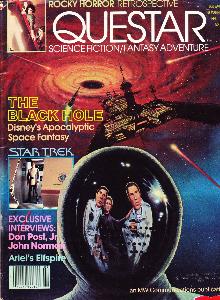
This interview was first published in Questar Magazine, volume 2, number 6, in February, 1981, by MW Communications, Pittsburgh, USA.
The same interview was republished in 1986 by the German publishing house Heyne in their first annual sf-newsletter "Das Science Fiction Jahr - Ausgabe 1986". Copyright © 1986 by Heyne Gmbh. Printed in a very small edition, exorbitantly high priced, a rare book. In it, a German translation of the Questar interview.
In 1982, the interview was republished in Fantasy Voices 1, part of The Milford Series - Popular Writers of Today, published by Borgo Press and currently available as Fantasy Voices, published by Wildside Press. This version contained one additional question, which had not been part of the original publication. As the rest of the interview remained the same, I have added this question as question 16a.
The following Question Overview and the individual question headings were added specifically for this online reproduction of the interview. Due to the differences in medium, I also added some extra indentation.
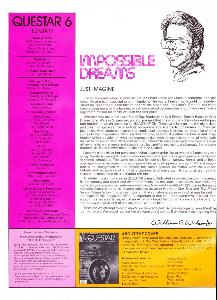
 Interview Introduction
Interview IntroductionWho is 'John Norman?' That question has baffled readers and critics alike for years. Indeed; rumors of all kinds have circulated as to the long-guarded identity of one of the world's most successful (as measured by total book sales) science fiction-fantasy writers.
Now, in this exclusive interview, Dr. John Lange, a.k.a., 'John Norman' answers many of the questions which have sparked this debate, questions relating not only to the author's identity, but to his controversial 'Gorean series'. For the first time in print, Lange sets the record straight, speaking first-hand about himself and his work, in what amounts to one of the liveliest and most provocative interviews of its kind ever published.
 Factsheet
FactsheetHaving divulged Norman's identity, the next appropriate question is: Who is 'John Lange?' The answer to this question was equally difficult to come by, but the facts below are as accurate as could be gleaned.
Dr. John Lange was born in Chicago, Illinois, on June 3, 1931. Lange is married and has three children, two boys and one girl. He is a professor of philosophy at Queens College of the City University of New York, in Flushing, New York, where he specializes in the areas of epistemology, logic, and innovational conceptualization.
The author received a B.A. from the university of Nebraska, an M.A. from the University of Southern California, and a Ph.D. from Princeton University. Lange has published several scholarly works, including The Cognitivity Paradox: An Inquiry Concerning the Claims of Philosophy (Princeton University Press, 1970) and Values and Imperatives: Studies in Ethics, by C.I. Lewis (Stanford University Press, 1969), which he edited.
Lange has worked, at one time or another, either part-time or full-time, as a radio announcer and writer for KOLN, Lincoln, Nebraska; a film writer for the University of Nebraska; and a story analyst for Warner Brothers Motion Pictures, Inc., in Burbank, California. He has also worked as a technical editor and special materials writer for Rocket dyne, a Division of North American Aviation, Inc., specializing in the production of rocket engines.
The author's first professional sale was a radio script to a station in Lincoln, Nebraska, when he was in high school, or somewhere thereabouts. Under the pseudonym, 'John Norman,' Lange has published a number of popular works, among which are the 'Gorean' books. He is a member of the Science Fiction Writers of America and the American Philosophical Association.
 1. How did you start?
1. How did you start?Questar: Can you say how you started as a science fiction-fantasy writer?
John Norman: I think this probably has something to do with one's imagination and its nature. Certain sorts of imaginations probably lend themselves more readily to different literary genres. As a modality of self-expression, adventure fantasy seems attractive, rich, and natural to me. I'm sorry this is not a better answer. Why do some people paint, others compose music? And if one paints, why do some paint landscapes and others...? I do not think. I will attempt to respond further to this question.
 2. What in the genre interests you?
2. What in the genre interests you?Questar: What is it about the genre, if anything, that accounts for your interest?
John Norman: Let us suppose that a lion hunts antelopes. Does he hunt antelope because there is something about antelopes that accounts for his interest? That sounds like a very rational decision process was involved. He probably hunts antelopes because he is a lion, and, being a lion, antelopes look good to him. Similarly, I suspect that I write adventure fantasy because I have a certain sort of imagination. Because of the way I am, perhaps, it looks good to me.
 3. Why did you use a pseudonym?
3. Why did you use a pseudonym?Questar: Why did you decide to write under a pseudonym, as opposed to your actual name?
John Norman: I have a family to support. At the time the first Gorean book was published, I did not have tenure at my academic institution. I did not wish to be denied tenure, and be out of a job, with no explanations given, but the reason being, perhaps, that I had dared to do something so academically disreputable as write science fiction. This situation has been ameliorated somewhat in the academic world in the last few years, but I think it is still true to say that, for the most part, it is academically customary to belittle and dismiss science fiction.
For example, I think a young man or woman in an English department would do well, even today, to keep a low profile about an interest in science fiction, if he or she is interested in tenure, promotion, etc. To my mind, there remains today in the academic world a great deal of prejudice against the genre. For example, at my own institution, science fiction, for purposes of fellowship leave applications, does not count as 'creative work.' That is interesting, I think, for science fiction and adventure fantasy are probably the most creative of the literary genres. If it had not been for the tenure problem, I do not think I would have used a pseudonym. On the other hand, I think 'John Norman' is an excellent writing name, and I am pleased with it. My own name, John Lange, incidentally, is almost never pronounced correctly. That would seem a count against it, at least as a writing name. Furthermore, it, hilariously, is used by at least one other writer as his pseudonym.
 4. Are you knowable through your fiction?
4. Are you knowable through your fiction?Questar: To what extent is John Lange knowable through his fiction?
John Norman: I do not think I am qualified to respond to this question. It is very difficult to know oneself, let alone worry about how aspects of one's personality might be expressed in one's work. Obviously, something of oneself must be involved in all honest creative work. On the other hand, I doubt that psychology is yet ready to make serious judgments on such matter. There are just too many unknowns in the equation, and it is difficult to control and correlate the writer variables, the analyzer's variables, and the work variables. To be sure, anyone who has read the Gorean books surely knows me better than if he had not read them. On the other hand, it is necessary to read the books intelligently and honestly. If the books are read unintelligently and hysterically, the result, I think, would be that the reader would finish up knowing very little about either the books or me.
 5. Why did you avoid publicity?
5. Why did you avoid publicity?Questar. Unlike most writers, you have studiously avoided publicity. Why?
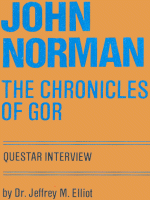 John Norman: I have not, perhaps, as studiously avoided publicity as many people think. I have, for example, publicly addressed various science-fiction conventions and various science-fiction groups. On the other hand, I think it is quite true that I have not made a practice of actively seeking publicity. First, it is not my nature to do so. Second, as is no secret, various individuals in the science-fiction community bear me great hostility. This is obvious in emotive, abusive, slanderous reviews. Accordingly, I see no point in entering more actively into the affairs of the science-fiction community. It is natural, incidentally, for these individuals to wish to control and limit science fiction: that I outsell them, say, forty or fifty to 'ne, also, has perhaps contributed to their pique. Some of these individuals take themselves very seriously, in spite of their having no obvious justification in doing so. Some resent my extending the perimeters of science fiction into new areas, this perhaps seeming to reflect adversely on their own work, which might then, in contrast, appear unprogressive, sterile, and juvenile.
John Norman: I have not, perhaps, as studiously avoided publicity as many people think. I have, for example, publicly addressed various science-fiction conventions and various science-fiction groups. On the other hand, I think it is quite true that I have not made a practice of actively seeking publicity. First, it is not my nature to do so. Second, as is no secret, various individuals in the science-fiction community bear me great hostility. This is obvious in emotive, abusive, slanderous reviews. Accordingly, I see no point in entering more actively into the affairs of the science-fiction community. It is natural, incidentally, for these individuals to wish to control and limit science fiction: that I outsell them, say, forty or fifty to 'ne, also, has perhaps contributed to their pique. Some of these individuals take themselves very seriously, in spite of their having no obvious justification in doing so. Some resent my extending the perimeters of science fiction into new areas, this perhaps seeming to reflect adversely on their own work, which might then, in contrast, appear unprogressive, sterile, and juvenile.
It is popular to call for 'new directions' in science fiction, but when one shows up, it seems that panic sets in. 'New directions' usually means new wrinkles or variations on old variations or old themes, within the limitations of certain orthodox political structures. They are thrilled by new hardware, which is safe; they are terrified by an attempt to treat human beings honestly, rather than as Victorian abstractions. I do not bear these people ill will. They are doubtless as innocent as mice and rabbits. On the other hand, I think one of the reasons for the isolation of John Norman in the science-fiction community, in spite of the fact that he is, I gather, the best-selling, or one of the best-selling authors in the genre, is to be explained in virtue of the hatred of a few individuals who wish to control, limit, and direct the destiny of science fiction. I think their power is unfortunate for the future of science fiction and, too, of course, for the future of up-and-coming writers who are not willing to spend years brown-nosing their way into the club.
The John Norman phenomenon, however, indicates that their power is not complete. One may then similarly hope that many other new writers may, in their own chosen ventures, be fortunate enough to speak the truth as they see it. Not only are the old lies repetitious, they do not even sell very well. The writer's hope is the readers, and their honesty iJnd care for good writing. It is the readers, in the final analysis, who have made John Norman successful. In spite of what might happen in the future, for example, that certain individuals might eventually become successful in managing to fully implement the censorship implicit in their position, it will always be the case that, at least for a few years, something was done against them and beyond them which was itself, and was, in its way, whether correct or incorrect, proud and magnificent. The Gorean books do exist.
 6. Do you write 'sword and sorcery'?
6. Do you write 'sword and sorcery'?Questar: How would you characterize the kind of writing you do? Is it fair to label it 'sword and sorcery' in content?
John Norman: I dislike labels and categories. They can be useful, but often they become stereotypes, and one then tends to view matters not as they are, in their own fullness and uniqueness, but under the attributes of their stereotypes. This is a cruel error where human beings are concerned and, logically, it does not improve in validity when the move is made to artifacts, musical compositions, stories, etc. The genre I write is, so to speak, 'the Gorean novels'. They are, for most practical purposes, their own genre. If one had to use labels, I would think that something like 'adventure fantasy' would be rather good. They are certainly not 'sword and sorcery'.
For example, magic is not involved in the books. Similarly, great attention is given to scientific verisimilitude, within, of course, artistic latitude. The Gorean books, incidentally, are one of the few productions in science fiction which take seriously things like human biology and depth psychology. I'm not announcing anything new if I point out that there is very little science, normally, in science fiction. Indeed, if one were merely interested in coming up with category titles which were more descriptive than 'science fiction' of what actually goes on in 'science fiction', presumably one would speak of something like 'engineering fiction' or 'technology fiction'. Furthermore, what science, as opposed to applied science (e.g., space ships, etc.), occurs in science fiction is usually limited to the physical sciences, or, in more knowledgeable writers, the social sciences. The human sciences (e.g., human biology and psychology) are usually avoided, perhaps because they involve areas 'too close to home'.
 7. Do you have specific requirements when writing?
7. Do you have specific requirements when writing?Questar: Do you have specific requirements when it comes to writing a story?
John Norman: I once knew a musician who would ask himself the following critical question about his music, 'does it sound?' Not being a musician, I am not fully cognizant of what he may have had in mind, but, clearly, he was not asking if it was audible or not. I think he Was suggesting that there was a 'rightness' about it which might be difficult or impossible to analyze, but which, if attained, would be recognizable. His test of good music then was 'whether or not it sounded.' It is hard to teach music on this kind of premise, but perhaps there is no other test or touchstone for excellence in that genre. Similarly, in writing, I suspect that all, or most, authors use a similar sort of subjective yet essential and significant test. 'Does it sound?' Is it terrific? Is it marvelous? Does it make you want to leap out of your chair and scream with joy? More simply, is it good? Is it right? In this sense, I would like for my work to be 'good,' to be 'right,' indeed, to be 'great.' Greatness is my objective. I would rather fail to have grasped a star than never to have lifted my head to the sky.
 8. Are you a meticulous writer?
8. Are you a meticulous writer?Questar: Are you a meticulous writer? Do you do considerable rewriting?
John Norman: Interestingly, the Gorean books write themselves. I do not know if other authors have this experience or not. I hope so, for it saves a great deal of work. The Gorean books are not put together like shelves, according to outlines or plans drawn up beforehand. They are more in the nature of organic products which grow. They are more like flowers and trees than reports and machines. I know when a book is ready: then I sit down and watch it unfold. I am sometimes an amazed, delighted spectator. It is like something going on over which I have very little control. It is more like a welcome gift. Why should I ask questions? If the book is not 'there,' then I do not know if it could be written or not. I have never hacked a book. When a book is ready, I have humbly accepted it, gratefully. On the hypothesis that these books are not dictated through me by some foreign intelligence, which would seem pretty screwy, I must suspect that they are very deeply related to subconscious creative processes. I am pretty much, perhaps unfortunately, at the mercy of such processes.
As the Eskimos say, 'No one knows from where songs come.' I do, of course, before turning in a manuscript, do some revising and some rewriting. I can sweat blood over commas, like any other beleaguered writer. On the other hand, if my information is correct, I probably expend fewer dues for literary torture than many authors. I hope so, for it sounds as though some of those fellows really suffer. I have nothing against suffering, incidentally. I just do not care to do it myself.
 9. Do you feel special obligations to your readers?
9. Do you feel special obligations to your readers?Questar. Given what you write, do you feel any special obligations to your readers? If so, what?
John Norman: I have general obligations to human beings and I have obligations to myself. I have special obligations to my family, etc. I am not clearly aware that I have special obligations to my readers, beyond those which I would have towards other human beings. I hope, of course, that they will enjoy my work.1 do not think I have an obligation to please my readers, for example, but I would naturally hope that I would. In the final analysis, I write for myself. I wish to please mostly myself. If an artist cannot be true to himself, how can he be true to anyone else? I think my readers expect me to be honest to myself. My first obligation is thus to truth and integrity. If I can fulfill this obligation, I think then that my readers, or most of them, will be satisfied.
 10. Are you a writer-entertainer, observer or reformer?
10. Are you a writer-entertainer, observer or reformer?Questar: How do you view your role as a writer-entertainer, observer, reformer?
John Norman: I do not think of writing as a role. Similarly, I do not think of eating and sleeping as roles. Writing is something which, for me, is very natural. Accordingly, it is difficult for me to try and answer this question. I write primarily for myself. I wish to please myself. I wish to come up with something great. Therefore, I do not primarily consider myself in 'other-related' roles {e.g., as an entertainer, reformer, etc.). One must be aware of defining oneself in relation to others. I am myself. So are most other people, if they only knew it.
 11. Do you model your characters on real people?
11. Do you model your characters on real people?Questar: How much would you admit to modelling your characters on real people?
John Norman: This seems an oddly phrased question. There is a sense in which I suppose most literary characters are modeled on 'real' people. This seems something less to be 'admitted' than something which it would be difficult to doubt. To be sure, characters, if interesting and believable, must have 'real' characteristics, the characteristics of 'real' people. One of the problems with much science fiction is that the background, perhaps because of its exotic nature, tends to intrude too much into the story and often distracts from elements such as plot and characterization.
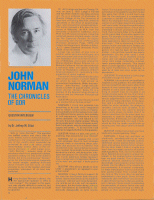 I think characterization, in particular, is difficult for many writers in science fiction because of the unusual 'scenery' involved. It is hard to get involved with a particular character when unusual appliances and gadgets are clicking and blinking, and whistling and zooming in the vicinity. This is an advantage that more pedestrian genres usually have over science fiction; that the background, because of its prosaic nature, can commonly be taken for granted, and the author can concentrate on character development and conflict. One of the strengths of Robert Heinlein, I think, is his capacity to handle characterization. Aside from his own considerable talent, one of his devices in this matter, it seems to me, is not to bite off more than he can chew in the matter of a specific background at a specific time. The background in Heinlein commonly gives us an enhancing setting for human concerns. In Heinlein, people are there, really. In certain other authors, things seem to take precedence over people; such authors are perhaps less interested in people than in things. From my own point of view, I find both interesting. People, however, I must admit, come first.
I think characterization, in particular, is difficult for many writers in science fiction because of the unusual 'scenery' involved. It is hard to get involved with a particular character when unusual appliances and gadgets are clicking and blinking, and whistling and zooming in the vicinity. This is an advantage that more pedestrian genres usually have over science fiction; that the background, because of its prosaic nature, can commonly be taken for granted, and the author can concentrate on character development and conflict. One of the strengths of Robert Heinlein, I think, is his capacity to handle characterization. Aside from his own considerable talent, one of his devices in this matter, it seems to me, is not to bite off more than he can chew in the matter of a specific background at a specific time. The background in Heinlein commonly gives us an enhancing setting for human concerns. In Heinlein, people are there, really. In certain other authors, things seem to take precedence over people; such authors are perhaps less interested in people than in things. From my own point of view, I find both interesting. People, however, I must admit, come first.
Incidentally, in the case of the Gorean books, the backgrounds are usually simple enough, and familiar enough, from the past history of Earth, and easily understandable extrapolations of barbaric cultures, to be fairly unobtrusive. Gorean backgrounds, thus, seldom distract from the interpersonal relations involved. Indeed, a great deal of attention is often given, in Gorean novels, to interpersonal interactions, sometimes of a dramatic and interesting nature. Similarly, character development is extremely important. Most characters in science fiction, as you know, begin as, and remain substantially, the cardboard stereotypes of juvenile hero literature. Indeed, one of the difficulties which some people have with the Gorean books is that their familiar and predictable stereotypes do not occur.
The Gorean books present an ethos which is not that of most Earthlings, and, indeed, one for which a great deal is to be said. The Gorean books suggest that human beings dare to think truly alternate realities, not just the old realities projected into an exotic environment. Perhaps the fear to do this motivates some of the abusive and hysterical reactions which the Gorean books have aroused. It seems tragic when individuals who are supposedly original and daring thinkers, by profession even, are suddenly revealed, in basic matters, to be truly afraid of thinking. Or, perhaps it is all right to think about machines; it is only ourselves, perhaps, about which we must not dare to think. Thought, of course, is very dangerous. It is the instrument of change.
 12. Do your characters have any degree of reality?
12. Do your characters have any degree of reality?Questar: What degree of reality do your characters have for you after you have finished writing about them?
John Norman: This seems to be something of an odd question, too. The characters in the Gorean novels, for what it is worth, seem extremely real to me. I am confident that I know how they feel about things, where their 'heads are at.' and how they would be likely to respond in given instances. I suspect any author feels this way about characters. If the character is not real, it seems it would be difficult to write about him, or her, or it. Surely, the reality of such a character does not cease when one ceases writing about him.
 13. Do you write for a particular audience?
13. Do you write for a particular audience?Questar: Do you write with a particular audience in mind? Do you tailor your work for this audience?
John Norman: Perhaps I write because I have to. If that is the case, then questions about particular audiences become somewhat irrelevant. I do, of course, wish to please myself. Perhaps this is relevant. This might be a good point to mention a theory I have about literary selection. The analogy, of course, is to natural selection. Let us suppose an animal is born with a certain set of physical properties and behavioral dispositions. Obviously, these properties and dispositions will influence its survival in a given environment.
For example, in some environments, thick fur and certain serum may be of value, while in other environments thin fur and different serum factors. Genetics, so to speak, throws the dice and the environment selects the winning numbers. A similar phenomenon occurs in evolving social and technological environments. Hero of Alexandria, in the Second Century B.C., constructs a novel toy; James Watt, in the Eighteenth Century A.D., building on the work of earlier inventors, designs an improved steam engine, and alters the nature and direction of human civilization. I think a similar phenomenon has occurred with the Gorean books. I have done what is right and natural and honest, at least from my own point of view. I have not attempted to please critics or conform to a market. I have been myself. I think this comes through in my writing. I am self-directed, rather than other-directed. I have kept my integrity. It has been my good fortune that the Gorean books are apparently needed in our contemporary civilization. Obviously, they answer to certain deep needs in human beings. If they were not important to people, and if they did not have something important to say, something which apparently desperately needs saying, they would not be as popular as they are.
 14. How would you describe your audience?
14. How would you describe your audience?Questar: How would you describe your audience? Who buys a John Norman novel?
John Norman: It is difficult to answer this question without any market research. Fan mail, of course, and sales in special outlets, such as college bookstores, provide us with some evidence. My impression is that the Gorean books are read and enjoyed by individuals of all ages and backgrounds. The sales, for example, for better or for worse, indicate that the audience for them extends far beyond the borders of the 'science-fiction' community. They have been on best-seller lists many times, for example. Unlike the usual science-fiction sales of a few thousand books, if one is lucky, they have sold millions of copies.
Incidentally, Gorean books have been published in several languages. Certainly, many women are avid fans of the Gorean series. Indeed, I think one of the contributions, not likely to be acknowledged, which the Gorean books have made commercially to the science-fiction field is that they have helped to open it up to female interest. In this sense, I think I have brought, or have probably brought, many new readers to science fiction, not only male, but also female. The success of the Gorean books, I think, tends to improve the sales of other science-fiction books, or adventure-fantasy books, by encouraging interest in the genre and enlarging its market. I, personally, am very fond of my audience. Their encouragement and support is deeply appreciated.
 15. Would you enjoy reading your own books?
15. Would you enjoy reading your own books?Questar: Would you enjoy reading your own books? Do you read other authors who write in the same vein?
John Norman: This is a hard question to answer, because I have written those books. It is thus hard to look at them objectively, as though, say, they might have been written by someone else. Since I think the books are marvelous and interesting, etc., I certainly hope that I would enjoy reading them. On the other hand, I can conceive of feeling extreme frustration, anger and disappointment if I read them, and had not written them, for then I think I would have wished that it had been I, and not the other fellow, who had written them. Perhaps I would be angry that he had 'gotten there first.' I do not read other authors who write in the same vein. I might if there were any. I don't know.
John Norman, at least at the moment, for better or for worse, is the only fellow in his field. My field, of course, is my sort of novel, that sort of novel which , have pioneered. I am tolerant of diversity in the science-fiction field, incidentally I do not have a set of a priori notions as to what counts as science fiction or not; I do not limit myself to certain traditional paradigms of propriety. I encourage each author to be true and honest to himself. The major danger which science fiction faces is self-imposed limitations, probably largely functions of psychological and cultural blocks.
 16. Do you research before writing?
16. Do you research before writing?Questar: How much research, planning, and study do you do before sitting down to write?
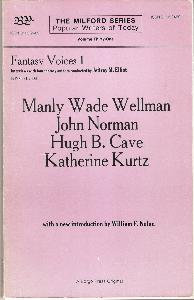 John Norman: As with most authors, my work is a result, at least in part, of resources that are accumulated over many years. As a youngster in high school, for example, I had an interest in ancient history. The first serious book I ever read, as I recall, was the Meditations of Marcus Aurelius. I remember reading it at the wrestling matches. Upon occasion, of course, specific research is in order for a given book; for example, in connection with one project or another, I have investigated, or deepened my investigations, of such matters as Roman naval construction, Medieval shipping, Viking sports, the economics of oases, Eskimo weaponry, and the flora and fauna of rain forests. I usually limit specific research to a dozen books or So and a few days' time. After all, I am not writing, say, a novel of Napoleonic France, which would require incredible fidelity to historical details. I am writing adventure fantasy.
John Norman: As with most authors, my work is a result, at least in part, of resources that are accumulated over many years. As a youngster in high school, for example, I had an interest in ancient history. The first serious book I ever read, as I recall, was the Meditations of Marcus Aurelius. I remember reading it at the wrestling matches. Upon occasion, of course, specific research is in order for a given book; for example, in connection with one project or another, I have investigated, or deepened my investigations, of such matters as Roman naval construction, Medieval shipping, Viking sports, the economics of oases, Eskimo weaponry, and the flora and fauna of rain forests. I usually limit specific research to a dozen books or So and a few days' time. After all, I am not writing, say, a novel of Napoleonic France, which would require incredible fidelity to historical details. I am writing adventure fantasy.
The Gorean world, of course, has been heavily influenced by our world; on the other hand, it is not our world. Thus, there must be a creative contribution to the construction of the world. In that sense, in adventure fantasy, research must serve a purpose beyond familiarizing oneself with certain facts; one must not content oneself merely with the replication of past realities. Instead, one must consider how such things, in a different situation in time, might become altered or transformed. Indeed, perhaps new inventions, cultural practices, etc., would be developed. The major value of research, I think, in this sort of situation, is not to limit, but rather to stimulate and enrich, the creative purpose. Aside from questions of research, I do not do much preplanning of my books. For example, as explained earlier, I prefer to let the book happen by itself, while I watch it. I am around, So to speak, while it is being written. I do, of course, generally have a background in mind, and sometimes a general problem or line of development. How can one make a map of territories he has never seen? How can he chart lands which he has not yet explored?
 16a. What are the salient themes of a Gorean novel?
16a. What are the salient themes of a Gorean novel?Note - this question was not part of the original Questar Interview. It was added for republication of the interview in Fantastic Voices.
Jeffrey M. Elliot: What are the salient themes or problems which typify a Gorean novel?
John Norman: This is an interesting question. Many themes occur and reoccur in the Gorean books. One of the major themes, of course, is the complex interplay between social and biological elements; another theme is the attempt to inquire into the nature of human beings; still, others are, friendship, courage, and love.
 17. What do you think of your own work?
17. What do you think of your own work?Questar: Do you think highly of your own work? Are you proud of the Gorean series?
John Norman: Yes. I think highly of my own work. It is the finest thing, of its sort, ever to be done in adventure fantasy. Whether or not one should be proud of one's work, on the other hand, is a more complex and interesting question. The moral question here, for a humanist and a naturalist, is a knotty one. It is particularly acute in my case because the books, as I have mentioned, pretty much write themselves. I do not know if I should take credit, in that sense, for them or not. I welcome them as gifts. I do not know if I am 'proud' that songs come to me. I am, of course, undeniably grateful.
 18. Do you have a favorite book?
18. Do you have a favorite book?Questar: Do you have a favorite among your books? What makes it your favorite?
John Norman: I do not think it is wise on an author's part to respond to this sort of inquiry. One loves all one's children.
 19. Why are your book so popular?
19. Why are your book so popular?Questar: What is it about your novels that explains their tremendous popularity?
John Norman: I don't really know. Hopefully, they are well written and exciting. Perhaps the readers find the Gorean world of interest. Perhaps the books touch on neglected or suppressed human constants, male and female. Perhaps they have something to say which has not been said for a long time. They are probably unique, or almost so, in modern literature, in raising serious questions about the intellectual superstructure of western civilization. They have intellectual content. There are ideas in them. Perhaps that is what so outrages some critics. Science fiction, however, or at least from my point of view, can be a literature with cognitive content. No one would deny that in principle, yet how few have troubled themselves to put it into practice. To paraphrase Nietzshe, the problem is not to have the courage of one's convictions; that is easy. The problem is to have the courage for an attack on one's convictions.
 20. Does writing serve a cathartic value for you?
20. Does writing serve a cathartic value for you?Questar: Does writing serve a cathartic value for you? Does it teach you important things about yourself and what you prize?
John Norman: I enjoy the writing, and I'm happy when I do it. Perhaps some sort of cathartic value is involved. I do not know. I suppose it would be. I do not know. There are probably many values, of a diverse nature, connected with writing. I would also suppose that one knows more about oneself when one has written a book than before. Similarly, when one has written a book, I suppose one might be clearer about either what one has valued or what one has decided to value than one might have been before.
 21. How important is artistic excellence to you?
21. How important is artistic excellence to you?Questar; How important is artistic excellence when it comes to your writing? Do you aspire to a certain literary standard?
John Norman: I am not the sort of fellow who presents himself either as an artist or a craftsman. These seem to me vanity costumes. I am less concerned with being an artist or a craftsman than I am with writing the book. My focus is on the work, not myself. It has been my experience that those fellows who make a great deal out of themselves as being 'artists' or 'only humble craftsmen,' are likely to be either good artists or craftsmen than the fellows who forget about that role garbage and are work-oriented, not image-oriented. The real artist, or craftsman, is hard to find on the cocktail circuit; he is too busy in the studio trying to get some effect or another right. Does that sprinkling can belong in the picture or not? He may paint it in and out a dozen times. He is not worrying about his image; he is worrying about the sprinkling can.
 22. What about the controversy?
22. What about the controversy?Questar: How do you respond to the charge that your books exploit sex and violence-that they debase and debauch the human spirit?
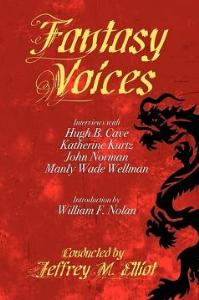 John Norman: There seem to me two very different charges here. Let us consider them separately. First, the word 'exploit' is, of course, a hostile word, a signal word, chosen, I assume deliberately, to prejudice a reader. It is not the sort of expression an objective individual would choose. On the other hand, let us not quibble about semantics. Certainly, sex and violence occur in the Gorean novels; certainly, sex and violence are used in the Gorean novels. They are significant plot elements. Perhaps to the horror of the critic, I see no reason to be apologetic about this. I guess I am just less guilty or timid, or something, than he is. Though the critic will not understand this, judging by the intellectual or emotional level suggested in the criticism, sex and violence are both real parts of life. History and human reality would be inexplicable without them. They belong in any strong, honest literature. To advocate writing an emotionally truncated, expurgated, namby-panby literature is, I suppose, permissible, but, it seems to me, it is certainly not desirable. Indeed, from my point of view, such a refusal to write honestly constitutes a betrayal of literature which I find not only aesthetically offensive but unreasonable and, I think, morally improper.
John Norman: There seem to me two very different charges here. Let us consider them separately. First, the word 'exploit' is, of course, a hostile word, a signal word, chosen, I assume deliberately, to prejudice a reader. It is not the sort of expression an objective individual would choose. On the other hand, let us not quibble about semantics. Certainly, sex and violence occur in the Gorean novels; certainly, sex and violence are used in the Gorean novels. They are significant plot elements. Perhaps to the horror of the critic, I see no reason to be apologetic about this. I guess I am just less guilty or timid, or something, than he is. Though the critic will not understand this, judging by the intellectual or emotional level suggested in the criticism, sex and violence are both real parts of life. History and human reality would be inexplicable without them. They belong in any strong, honest literature. To advocate writing an emotionally truncated, expurgated, namby-panby literature is, I suppose, permissible, but, it seems to me, it is certainly not desirable. Indeed, from my point of view, such a refusal to write honestly constitutes a betrayal of literature which I find not only aesthetically offensive but unreasonable and, I think, morally improper.
The question here is a simple one: Is the writer to be honest to life, in its fullness, or not? I would think so, but that is my own answer. I cannot answer for others. Let those who fear to think and feel write without emotion or thought. Let those who can both feel and think write with both emotion and thought. Incidentally, while we are on the topic, it might also be noted, in fairness, that the Gorean books exploit discipline, courage, nobility, honor, and love. The human being, with his heights and glories, his depths and cruelties, exceeds in complexity and reality the abstractions and idealizations of the frightened and the weak. It will always be thus. I love man and fear him; thus I will celebrate him. I will try to honor him as being as he is; not as fools might wish him.
The second charge has something to do with 'debauching' and 'debasing' the 'human spirit.' It is difficult to know how to respond to a criticism of this sort, because it is difficult to know if the critic intends it to be understood literally or figuratively. If the critic intends it to be taken literally, it seems to be obviously false. There is no such thing, literally, as far as I can tell, as 'the human spirit.' Accordingly, it can neither be debased nor debauched. Similarly, there is no such thing, strictly, as far as I can tell, as a 'giraffe spirit' or the 'spirit of apple pie.' On the other hand, on the assumption that the critic is at least vaguely aware of developments in science in the past 120 years, specifically in the sciences of biology, psychology and anthropology, we may assume that he intended it figuratively. But if this is so, it might mean a number of different things. Accordingly, he could always claim that whichever possibility I chose to discuss was not that which he intended.
On the other hand, since that cannot be helped and is a predictable response, I think I have little choice but to steam ahead. Accordingly, I shall do so. The 'human spirit,' I am afraid, for better or for worse, is more complicated than our critic understands. All things that human beings do are manifestations of the 'human spirit.' If the critic would understand the nature of the 'human spirit,' I suggest to him that he consult the tapestries and pageants of history. In those bloody threads he will find its biography delineated. There he will discover that hunting, and pride, and lust, and victory are as much authentic manifestations of the 'human spirit' as the planting of flowers and the dreams of innocence. Indeed, they seem more germane to its iron and its songs than hypocrisy and lace. One of the strengths of the Gorean books, in my opinion, is that they constitute one of the few places in contemporary literature where the 'human spirit,' as it exists in reality, and not in the abstractions of political mythologies, is neither denied nor distorted.
The Gorean books celebrate the 'human spirit' in its fullness, in its darkness and its glory, in its pettiness and cruelty, in its shame and in its incomparable splendors.
 23. Are you surprised by the controversy?
23. Are you surprised by the controversy?Questar: Are you surprised by the tremendous controversy that has grown up around your work? Why do you think it exists?
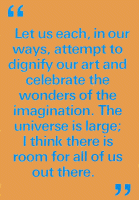 John Norman: Yes, I am surprised. I'm not sure why there is so much controversy. The books seem to be pretty innocent. After all, what is so terrible about taking ethnology, or depth psychology seriously? I think the reasons for the controversy are irrational, rather than rational. Apparently, some people read the Gorean books with the dispassionate objectivity of a psychotic interpreting Rorschach blots. They see anything they wish to see in them. As a result of these projections, they are apparently sometimes disturbed. One has trouble, for example, with the sexual hysterics. Some of these have perhaps found a refuge in science fiction, which, commonly, even today, tends to avoid coming to grips with the nature and problems of human sexuality. There are, however, doubtless many other reasons for controversy as well. Three other factors come immediately to mind.
John Norman: Yes, I am surprised. I'm not sure why there is so much controversy. The books seem to be pretty innocent. After all, what is so terrible about taking ethnology, or depth psychology seriously? I think the reasons for the controversy are irrational, rather than rational. Apparently, some people read the Gorean books with the dispassionate objectivity of a psychotic interpreting Rorschach blots. They see anything they wish to see in them. As a result of these projections, they are apparently sometimes disturbed. One has trouble, for example, with the sexual hysterics. Some of these have perhaps found a refuge in science fiction, which, commonly, even today, tends to avoid coming to grips with the nature and problems of human sexuality. There are, however, doubtless many other reasons for controversy as well. Three other factors come immediately to mind.
First, the resentment of certain in-group individuals to the success of a newcomer; this resentment can be rationalized, of course, in a variety of ways; one hates first, then one thinks up reasons.
Secondly, the Gorean books present a different ethos and take it seriously. This frightens some people because it makes them feel insecure; everyone is supposed to have the right opinions and values-theirs. When they meet someone who presents a genuinely alternative conceptualization of reality, an intellectual alternative rather than a merely mechanical alternative, they become alarmed; they feel threatened. They are only verbally in favor of diversity of thought; their rhetoric of freedom is revealed as hypocrisy; it is belied by their bigotry and intolerance.
Thirdly, the Gorean books have introduced new subject matter and new ideas to science fiction. They have plowed new conceptual furrows; they have altered, in the thinking of thousands, the conceptions and horizons of science fiction. The borders of science fiction have been extended by my work; new possibilities have been delineated and explored. It is natural that these changes would be felt as threatening to a vain, stale, insecure establishment. Will the old formulas no longer work? Will their own work seem unimaginative and juvenile by contrast? Will they suffer a loss in prestige? Are the Huns truly at the gate? If I knew how, I would like to reassure these frightened people. They have their strengths and weaknesses, as I do; they have their naiveties, their stupidities, their frailties, as I do. Perhaps the Hun at the gates is not really so different from themselves as they might fear. Perhaps he, too, has a respect and affection for a genre.
Science fiction is a big place, really. It contains many countries. It is robust, it is healthy. Let them live and write. Let us each, in our ways, attempt to dignify our art and celebrate the wonders of the worlds of the imagination. The universe is large; I think there is room for all of us out there.
 24. Does the misunderstanding matter to you?
24. Does the misunderstanding matter to you?Questar: Does it matter to you that many people seem to misunderstand your work, misinterpret your intent?
John Norman: I am not one of these authors who will cry a great deal about being misunderstood. I suspect most readers understand me fairly well, on one level or another. Obviously, one cannot expect a sharp fifteen-year-old boy to have the same meaning fulfillment from a Gorean book as a gifted, mature executive; he simply has not yet had the necessary life experiences. On the other hand, hopefully, both of these readers will find their experiences stimulating and rewarding. Many readers have read the Gorean books several times; they have learned, I gather, that there is more to come back for. It is nice to have written books that can be read many times.
These are interesting questions here, incidentally, about the concepts of understanding a work and of interpreting an author's intent. Obviously, a Gorean book is not a secret message or a communication in code. Similarly, the relation of an author's intent to a finished product is surely an obscure one. He may have had no clear intent. If he did, he might not have fulfilled it; he might have changed his mind somewhere; he may not remember what his intent was; his memory may be untrustworthy, etc. A work grows in its making. It can start dictating its own parts. Then what happens to the author's 'intent'? The notion of 'intent,' it seems to me, is too conscious a a notion; I am not sure it is all that useful as a category for understanding literature. What was the potter's intent when he started on the pot? Probably to make a terrific pot. That may be about it. Some critics, of course, seem to have been almost perversely slanderous in their reactions to the Gorean books, over-reacting in ways that seem quite out of proportion to the texts involved. Here, I gather, some raw nerve or weakness in their psyche must have been touched. Perhaps, in cases such as this, it is fair to speak of such things as 'misinterpretation.'
 25. Have you flirted with the idea of 'coming out'?
25. Have you flirted with the idea of 'coming out'?Questar: Finally, have you flirted with the idea of 'coming out' - talking about your books and your view of the genre in a more open manner?
 John Norman: I do not have to 'flirt' with the idea of 'coming out;' for, in my opinion, I have never been 'in.' I have been fairly available to the science-fiction community and have, over the years, on a number of occasions presented my views on various topics. This question, like a preceding one, is simply based on a mistken assumption. On the other hand, I do, frankly, think it is not in an author's best interest to be too publicly evident. The work is important, not me. Once the work is published, the author, I think, is well-advised to let it take care of itself.
John Norman: I do not have to 'flirt' with the idea of 'coming out;' for, in my opinion, I have never been 'in.' I have been fairly available to the science-fiction community and have, over the years, on a number of occasions presented my views on various topics. This question, like a preceding one, is simply based on a mistken assumption. On the other hand, I do, frankly, think it is not in an author's best interest to be too publicly evident. The work is important, not me. Once the work is published, the author, I think, is well-advised to let it take care of itself.
Hopefully, the Gorean books are not so obscure or incomprehensible as to require explanation and elucidation. similarly, it seems to me that it is not the author's business to comment on his work, but, rather, that that is the task of the critic. I have never responded directly to any critic, as a matter of policy, no matter how idiotic, confused, or asinine he may have been. I feel that any honest reader of intelligence, perception, and awareness can see through the superficial would-be putdowns of intellectual peewees. This is not, of course, to be construed as a criticism of serious critics who have attempted to come to grips with the Gorean phenomenon. I have not, too, of course, discussed the honest and serious attempts to understand the Gorean works. This, too, is a matter of policy with me.
Accordingly, I have not in the past, and I do not intend in the future, to publicly defend or discuss the Gorean books. This is not because I am a secretive villain, but because I do not think such defense and discussion on an author's part is either necessary or judicious. Beyond this, of course, I am a shy person; it is thus natural for me to avoid publicity and the limelight. Perhaps I would be much better off if I had a robust zeal for public relations and self-advertisement; I do not know. Too, it must be admitted that I do not find controversy stimulating. I am simply not that kind of person - I would rather be working.
"I love man and fear him; thus I will celebrate him. I will try to honor him as being as he is, not as fools might wish him".
Copyright © 1981/2012 by Jeffrey M. Elliot - All Rights Reserved.
Published with kind permission of both the author and John Norman.
This reproduction copyright © 2012 by The Complete John Norman.
 Page Gallery
Page Gallery
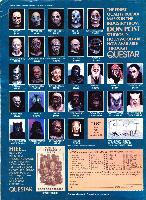

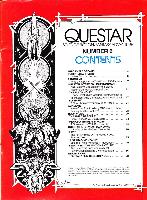
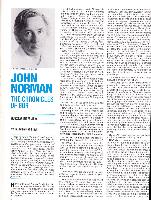
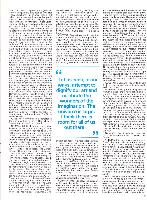
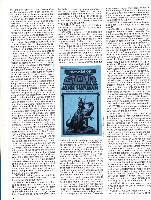
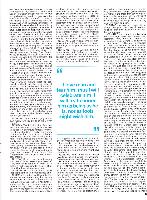
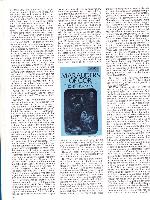
 Fantasy Voices
Fantasy Voices
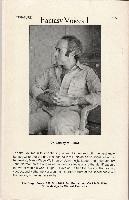
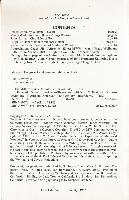
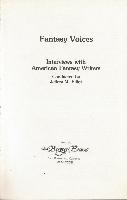
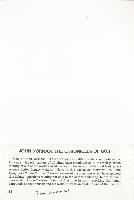
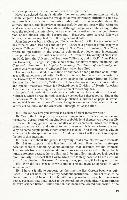
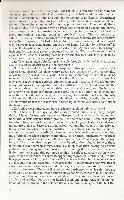
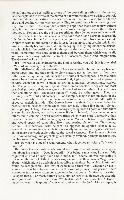
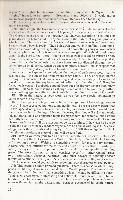
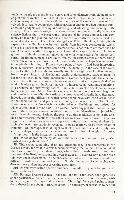
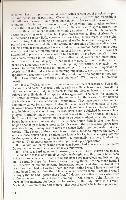
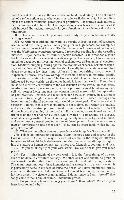
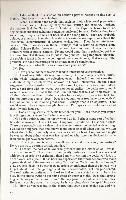
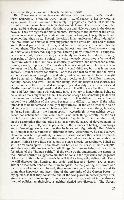
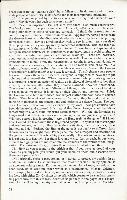
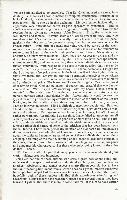
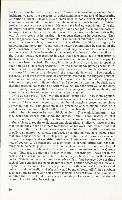

 This page is copyright © 2000/2013 by Simon van Meygaarden & Jon Ard - All Rights Reserved
This page is copyright © 2000/2013 by Simon van Meygaarden & Jon Ard - All Rights Reserved